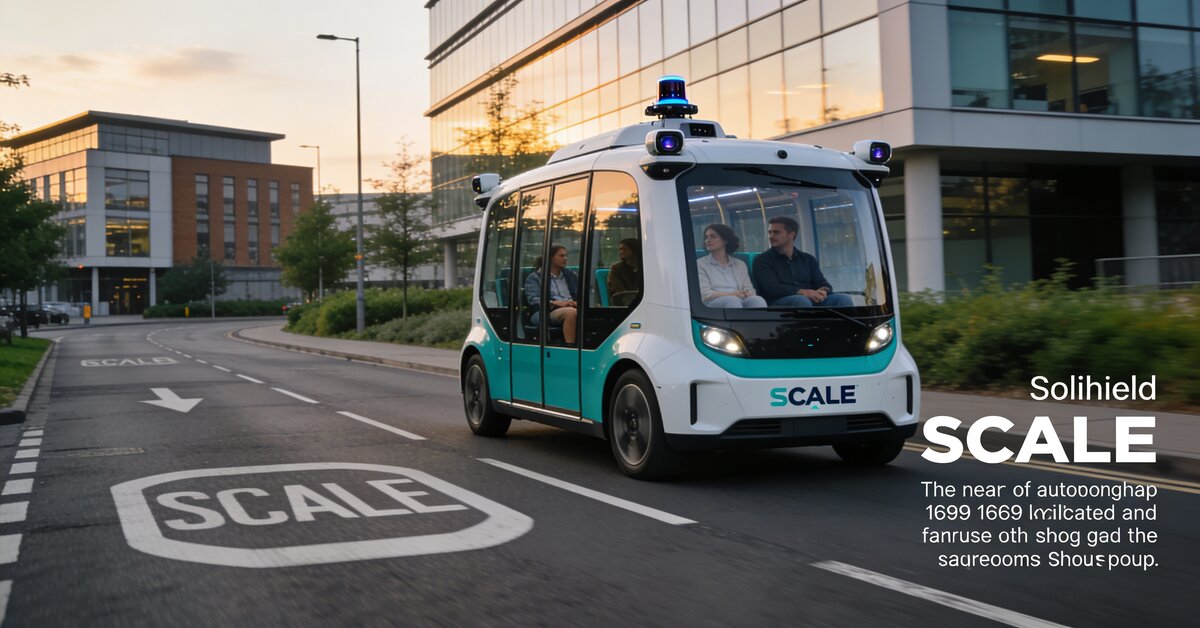The Solihull & Coventry Automated Links Evolution (SCALE) project is set to roll out three electric, self-driving shuttles along a newly developed 7-kilometer route, connecting Birmingham International rail station, the NEC, and Birmingham Business Park. This innovative initiative will enhance local transportation while contributing valuable insights into the future of connected automated mobility (CAM) services.
Solihull, which became one of the UK’s first towns to host self-driving vehicle trials in 2021, is no stranger to autonomous technology. Those early tests, led by the local council, paved the way for the SCALE project, which aims to deepen understanding of how self-driving vehicles can integrate into existing transport systems. This latest phase will focus on several key aspects: the commercial potential of automated transport, the experience of passengers, and operational considerations such as insurance and vehicle maintenance.
At the heart of this initiative are shuttles developed by Ohmio, a New Zealand-based autonomous vehicle manufacturer. Each shuttle can accommodate up to 20 passengers and is equipped with advanced cameras and sensors. These technologies allow the vehicles to navigate their surroundings, interact with live traffic, and move safely within complex road environments.
Safety remains a top priority for the project. In compliance with UK regulations, a human operator will be present on each shuttle at all times. These operators are trained to take control of the vehicle should any situation require human intervention. Additionally, every journey will be closely monitored from the Transport for West Midlands (TfWM) control center, based on Summer Lane, ensuring real-time oversight of the shuttle operations.
SCALE is being delivered by a consortium of organizations that bring a diverse range of expertise. Leading the project is Solihull Council, alongside partners such as the University of Warwick, Coventry University, TfWM, Coventry City Council, the NEC, and key industry players like Direct Line Group, automated vehicle simulation specialists IPG, and dRisk. The project has received financial backing from the Department for Transport’s Centre for Connected and Autonomous Vehicles (CCAV), further highlighting its importance in shaping the future of transport in the UK.
Councilor Andy Mackiewicz, Solihull’s cabinet member for climate change and planning, emphasized the importance of this next phase. “We’ve already carried out a series of successful pathfinder trials here in Solihull, showing how it’s possible to safely incorporate self-driving vehicles into our transport infrastructure. SCALE represents the next step in this learning and will help us explore how future commercial passenger services might operate.”
The project’s significance extends beyond technological advancement. It aims to demonstrate the practicality and safety of autonomous vehicles in real-world scenarios while gathering data that could help address some of the logistical and operational challenges associated with self-driving technology. This includes examining insurance models, vehicle maintenance, and the long-term financial sustainability of automated public transport.
SCALE is not just about innovation for the sake of technology; it’s about preparing for a future where self-driving vehicles could play a key role in public transportation, offering a cleaner, more efficient, and more accessible way to move people across urban areas. With its focus on Solihull, Coventry, and Birmingham, the project is set to become a milestone in the UK’s journey toward autonomous mobility solutions.







